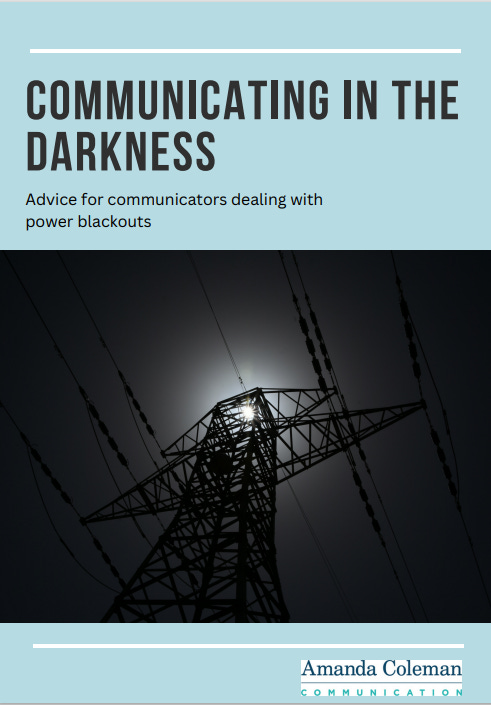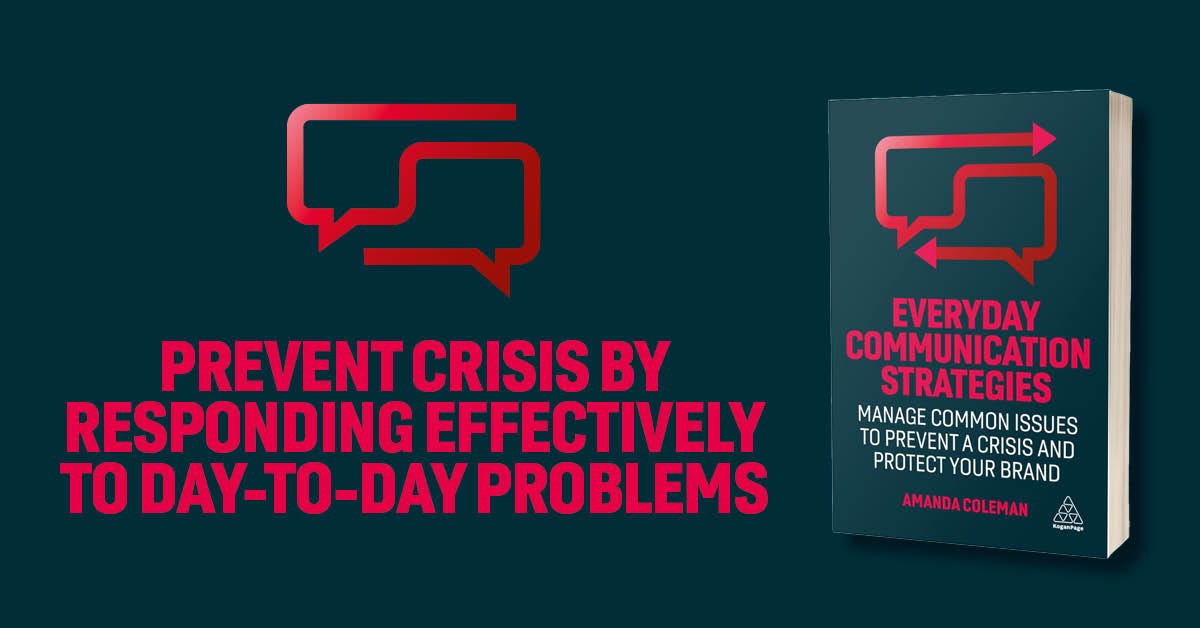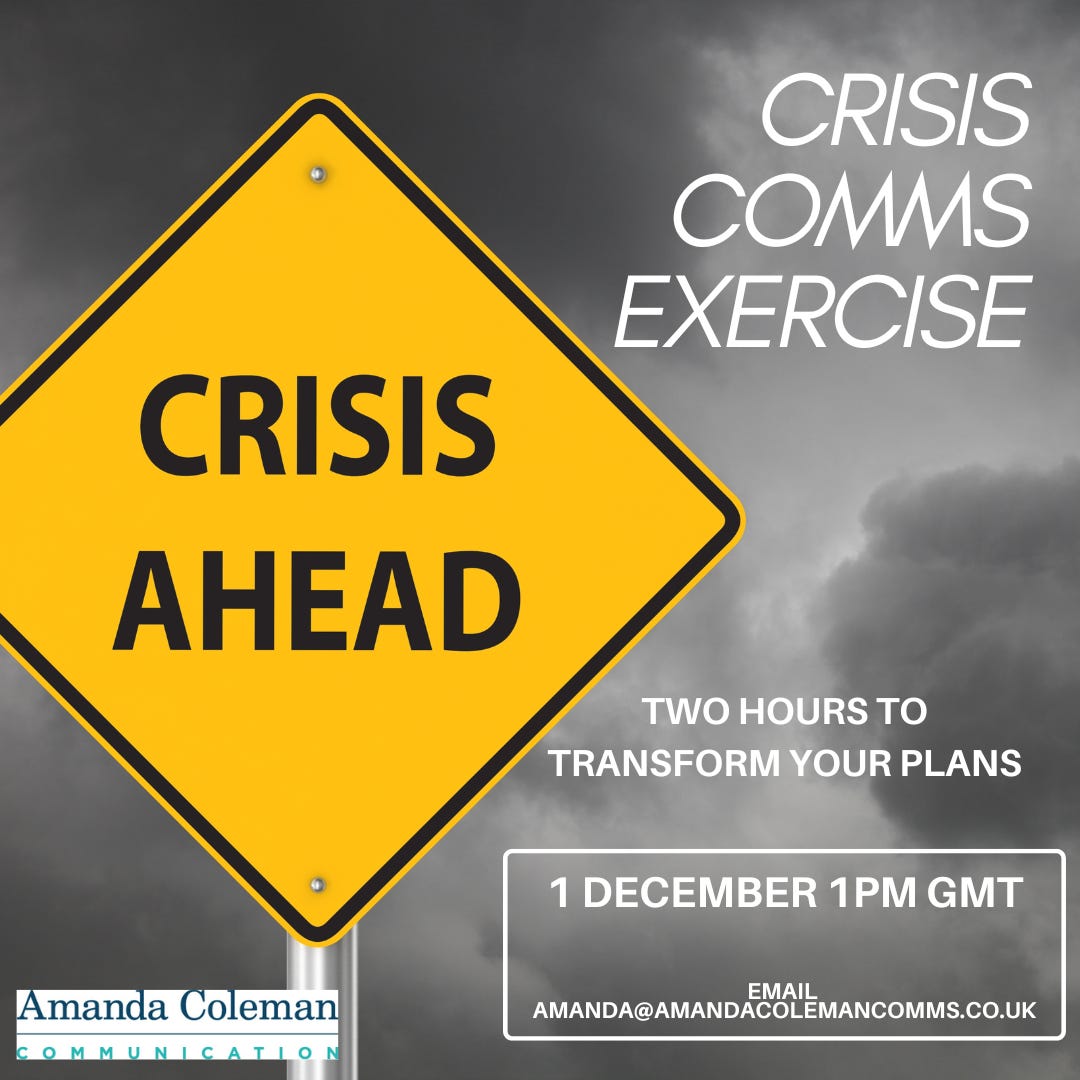Communicating in the Darkness
Government ministers say it is unlikely to happen, energy industry bosses are considering the options, but one thing is sure we all need to be prepared. In the 1970s those old enough will remember blackouts in the UK. The differences between then and now are huge.
Back then people worked away from home. They didn’t have a lot of technology that they needed to use in the home. They didn’t have lots of appliances to power. Now, we rely on our technology and more of us are working from home. So, we have to think differently about what we do and how we will deal with power outages.
I brought the advice for people and some areas to consider for communicators into one short guide Communicating in the Darkness that is available free to anyone who is interested.
We need to prepare now as the suggestions are it will be January or February when the problems will occur. The media will increase public concern talking about it as an horrific experience but telling people how to prepare and what they can do is more important. The potential for this problem has been raised many weeks in advance so there is no excuse for businesses and organisations who have not put plans in place.
The starting point is looking at those business continuity plans and then building on them with a bespoke blackout plan that employees know, understand and are ready to enact. But if you want to find out more about preparing communication in a blackout get in touch for a copy of the guide.
If you would like to receive a copy of the short guide, contact Amanda at amanda@amandacolemancomms.co.uk
Everyday Communication Strategies - Win a copy
Amanda’s latest book Everyday Communication Strategies: Manage Common Issues to Prevent a Crisis and Protect Your Brand was published on 3 November. If you want some hints and tips on how to avoid an issue becoming a crisis and to consider a range of case studies the book provides advice on effective issues management.
Readers of this newsletter have an opportunity to win a copy of the book. Just share the newsletter, or thoughts about it on Twitter or LinkedIn tagging Amanda (amandacomms and Amanda Coleman) and on 10 November a winner will be chosen at random.
For readers in the USA and Canada publication will happen on 23 November but you can preorder.
Trolls, conspiracy theories and spreading hurt
The BBC Panorama programme that investigated the activities of conspiracy theorists who target victims of terrorist attacks was shocking. Amanda was responsible for leading the police communication response to the Manchester Arena terror attack and was devastated to see what was happening to people who had suffered so much. “I found the programme really upsetting to watch,” she explained. “The thoughts that people are spreading misinformation and even say the attacks were staged is shocking. It is horrific for those who were caught up in the attack and will have a huge impact on all those who were involved in the response.”
Amanda wants people to challenge such views, misinformation and trolling behaviour whenever they find it. Read more about the programme here.
Final Places for Crisis Comms Exercise
There is just one place left on the 1 December Crisis Communication Exercise that Amanda is running. Anyone interested should email amanda@amandacolemancomms.co.uk to secure the final spot. If you can’t attend that date another session is being planned for early 2023 and you can register interest now to get priority information.
In Brief:
UK National Centre for Resilience Learning and Development has a regular update digest available to provide key updates, themes and information for those working in the resilience sector. You can find out more here.
Following the horrific scenes in South Korea where a crowd surge left more than 150 people dead, the Event Safety Alliance provided a podcast on how crowds operate which will be of interest to anyone working in the emergency, and event management spheres. Find out more here.
A recent article in the Journal of Contingencies and Crisis Management highlights the inequalities that are brought by emergency and looks at the impact of Covid-19 in the Falklands. Find out more here.
The final report from the Scottish Parliament into Storm Arwen almost 12 months ago has been published. Find out what it said here.
Amanda published the latest crisis communication case study at the start of the month. The latest edition looks at the behaviour of brands and provides valuable insight ahead of a challenging Christmas period. If you would like to receive a copy email amanda@amandacolemancomms.co.uk
One for future case studies is the situation highlighted by Robert Tornabene focusing on KIA. Find out what they did and what they could have done here.
In her latest blog Amanda provides some thoughts on journalists moving into top Government jobs. Find out more here.
Diary Dates:
Thursday 10 and Friday 11 November - Amanda is running a crisis communication masterclass as part of the Westco Academy. Find out more here.
Amanda will be running the PRCA webinar on Developing Engaging Content in the Public Sector on 15 November. If you are looking for some inspiration, find out more here.
On 15 November Amanda will be speaking about crisis communication and major incidents at an online conference. Find out more about the session here
Comms 2.0’s creativity lab returns on 16 November with a session on Creativity in a Crisis run by Amanda. Find out more here.
Amanda will be guest chairing the SASIG webinar on Friday 18 November. The session is looking at Defending and attacking native on premise Kubernetes orchestration system. Find out more here.
On 29 November, Amanda will be part of a panel looking at law enforcement and digital engagement for the Secure Communities Forum discussion event. Find out more here.




